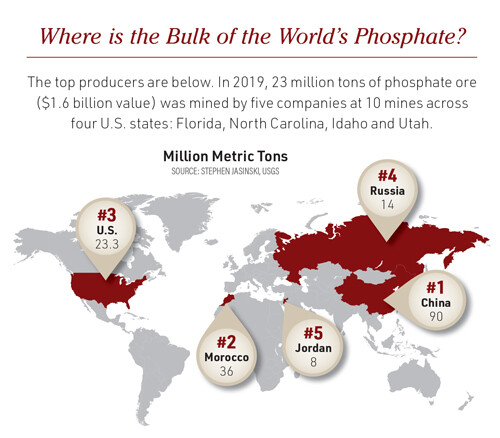
Mosaic Company filed a petition in mid-July that accuses phosphate producers in Morocco and Russia of receiving unfair government subsidies that cause material injury to domestic (U.S.) producers as a result. The U.S. Department of Commerce initiated countervailing duty (CVD) investigations to determine the validity of the petition.
In Morocco, there are eight subsidy programs, including loan programs, tax programs, less-than-adequate remuneration programs and a creditworthiness allegation related to OCP Group, a Moroccan-based phosphate rock miner, according to the international trade administration. Russia also has eight alleged subsidy programs including less-than-adequate remuneration programs, tax programs and a loan program.
In laymen’s terms, the Department of Commerce is trying to determine if phosphate is being unfairly subsidized to non-U.S. phosphorus producers.
The Department will determine whether these are unfair subsidy programs that target U.S. imports of phosphate fertilizers from Morocco and Russia and materially injure or threaten material injury to the U.S. fertilizer industry. If the affirmative is determined, it will impose duties on those imports in the amount of unfair subsidization that exists.
Final determinations by the Department of Commerce will be announced Dec. 7, 2020. Whatever decision is made could impact supply chain movement, and ultimately prices for phosphorus at the farm gate.
In 2019, U.S. buyers imported $729.4 million in phosphate fertilizers from Morocco and imported $299.4 million from Russia.
If you want to follow this investigation or learn more case information, the International Trade Administration provides information here. To date, the U.S. Department of Commerce maintains 529 anti-dumping and countervailing duty orders to provide relief to U.S. companies and industries impacted by unfair trade situations.








 User Center
User Center My Training Class
My Training Class Feedback
Feedback












Comments
Something to say?
Log in or Sign up for free